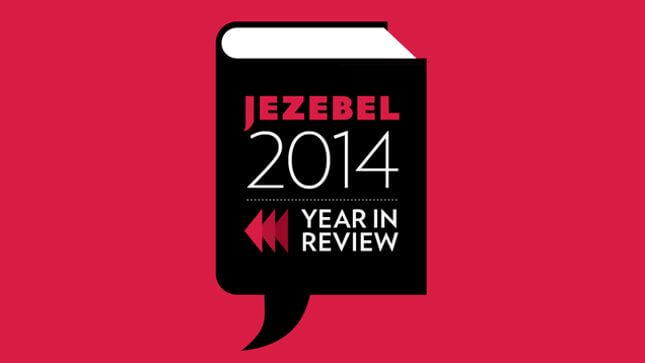Our Favorite Reads of 2014
Latest

We read a lot here at Jezebel HQ. Some of it’s good; some of it’s think-piece-inducing infuriating. But there’s always a few sparkling gems winking from the midden. Here are our favorite essays, books, tweets, emails of 2014.
Kate Dries
Americanah, Chimamanda Ngozi Adichie Who knew a story about a blogger could be so riveting? (I kid, I kid.) Yes, this book came out in 2013 and there’s nothing I can say about Americanah that hasn’t already been said better by others but: what I found the most heartening about this beautiful text was the comfort you can write a book for adults that doesn’t have an endlessly depressing ending.
“The Worst Day Of My Life Is Now New York’s Hottest Tourist Attraction,” Steve Kandell “As a New Yorker who grew up and went to school mere blocks away from the Twin Towers during 9/11,” I’ve got a lot of strong feelings about that day. Kandell managed to validate all of those emotions while pushing the way I thought about them even further, something I didn’t think was possible. History, time, perspective, an exploration of the divide between the personal and the political—this piece has it all.
“Lawyer for Santa Accused of Public Handjob Demands Article Be Yanked,” Neetzan Zimmerman Dude who gets caught doing something embarrassing in public pretends to be a lawyer, is swiftly called out. There’s no better blog content than that.
This email I got from my best friend after going on vacation for 10 days Returning to the internet after not looking at it for over a week can be daunting, until you realized that you missed probably five good things. This was the best of those things.

Emma Carmichael
When I was a kid I was a chronic re-reader; I’d often finish a book and start it over right away. I don’t do that anymore, but here are a few things I read and often revisited in 2014:
“Golden Toilet Tower, headless nude statues: Inside Kimye’s wedding,” by Page Six Spy: This is the greatest gossip report of all time, in part because it reads less like a report and more like unhinged fan fiction. There are many beautiful sentences in here, but my favorite is towards the end, after Andrea Bocelli sings for Kim’s processional and is then sent home because the wedding planners hadn’t saved him a seat. Page Six Spy writes, straight-faced, “Bye-bye to one of the greatest living Italian vocalists of all time.” I often repeat this sentence to myself. It is musical and deranged. Bye-bye to one of the greatest living Italian vocalists of all time. Bye-bye.
KattWillFerrell’s Twitter, by KattWillFerrell: Here in 2014, most things on the internet are bad, and KattWillFerrell has a knack for combining multiple things that are bad—mostly, overused memes and Twitter jokes—and making them meaningless, which I appreciate. Consider progressions like this one:
KattWill is the only good thing left on Twitter.
-

-

-

-

-

-

-

-

-

-

-

-

-

-

-

-

-

-

-

-

-

-

-

-

-

-

-

-

-

-

-

-

-

-

-

-

-

-

-

-









































